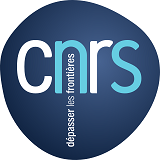Distributed Feedback Control of Multi-Channel Linear Systems
Abstract:
The central aim of this talk is to explain why any jointly controllable, jointly observable multi-channel linear system with a strongly connected neighbor {communication} graph can be exponentially stabilized with arbitrarily fast convergence using a time-invariant distributed linear control. This result can be established using a distributed observer-based control architecture analogous to the familiar centralized observer-based architecture used to control a controllable, observable, linear system. A key consequence of this finding is that the well-known fixed spectrum {set of fixed modes} of a multi-channel linear system is no longer an obstacle to the system's regulation provided distributed rather than decentralized control is used. It will also be explained how to avoid this obstacle using distributed control without restricting the control architecture to be of the observer-based type. Using these ideas, a solution will also be given to the distributed set-point control problem for a multi-channel linear system in which each and every agent with access to the system is able to independently adjust its controlled output to any desired set-point value. Often overlooked in the study of distributed control are the effects of communication network transmission delays. It will be explained why in the face of such delays, exponential stabilization at a prescribed convergence rate can still be achieved with distributed control, at least for discrete-time, multi-channel linear systems.
Biography:
A. Stephen Morse was born in Mt. Vernon, New York. He received a BSEE degree from Cornell University, MS degree from the University of Arizona, and a Ph.D. degree from Purdue University. From 1967 to 1970 he was associated with the Office of Control Theory and Application {OCTA} at the NASA Electronics Research Center in Cambridge, Mass. Since 1970 he has been with Yale University where he is presently the Dudley Professor of Engineering. His main interest is in system theory and he has done research in network synthesis, optimal control, multivariable control, adaptive control, urban transportation, vision-based control, hybrid and nonlinear systems, sensor networks, and coordination and control of large grouping of mobile autonomous agents. He is a Fellow of the IEEE, an IFAC Fellow, a Distinguished Lecturer of the IEEE Control System Society, and a co-recipient of the Society's 1993 and 2005 George S. Axelby Outstanding Paper Awards. He has twice received the American Automatic Contr ol Council's Best Paper Award and is a co-recipient of the Automatica Theory/Methodology Prize . He is the 1999 recipient of the IEEE Technical Field Award for Control Systems. He is the 2013 recipient of the American Automatic Control Council’s Richard E. Bellman Control Heritage Award. He is a member of the National Academy of Engineering and the Connecticut Academy of Science and Engineering.
